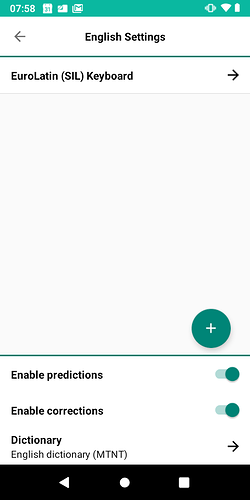Dear Lexical Model experts,
I am trying to get my head around whether or not the touch-screen keyboard users would benefit by having a customised Search-term-to-key. (I have copied the help file below).
From what I understand, it is helpful with non composed characters, like:
U_025B + 0301 ɛ́ and several more like … ŋ́ Ɛ́ etc ect In the language I am working on these are very frequent.
What do you advice me to do?
Thanks in advance for any help you can give,
Bart.
PS : https://help.keyman.com/developer/13.0/guides/lexical-models/advanced/search-term-to-key
Search term to key
To look up words quickly, the trie model creates a search key that takes the latest word (as determined by the word breaker and converts it into an internal form. The purpose of this internal form is to make searching for a word work, as expected, regardless of things such as accents , diacritics , letter case , and minor spelling variations . The internal form is called the key. Typically, the key is always in lowercase, and lacks all accents and diacritics. For example, the key for “naïve" is naive and the key for “Canada” is canada .
The form of the word that is stored is “regularized” through the use of a key function, which you can define in TypeScript code.
Note: this function runs both on every word when the wordlist is compiled and on the input, whenever a suggestion is requested . This way, whatever a user types is matched to something stored in the lexical model, without the user having to type things in a specific way.
The key function takes a string which is the raw search term, and returns a new string, being the “regularized” key. As an example, consider the default key function ; that is, the key function that is used if you do not specify one:

